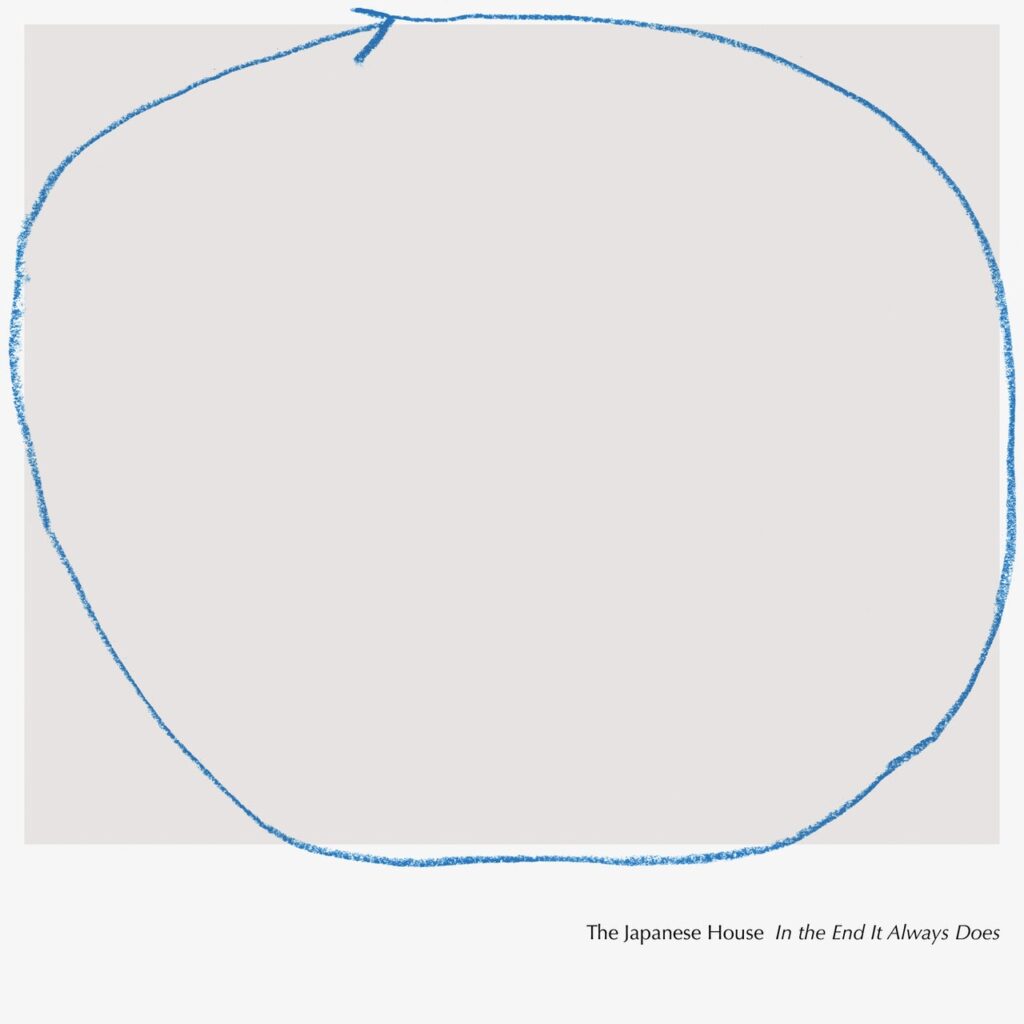In the End It Always Does, Amber Bain’s second album as the Japanese House, strikes a beautiful equilibrium, wedding perceptive writing with bright, buoyant production. Reveling in the raw sting of a breakup, it continues Bain’s collaboration with the 1975 drummer and producer George Daniel, who, along with London-based producer and engineer Chloe Kraemer (Lava La Rue, Glass Animals) co-produces every song. While Bain’s early music tended toward hazy tones that occasionally overwhelmed her contemplative vocals, the music here is emotional and danceable, elevating her forlorn melodies and nuanced thematic through-lines.
With brief appearances from Bon Iver’s Justin Vernon, MUNA’s Katie Gavin, Matty Healy, and Charli XCX, Bain bends heartbreak into new shapes. One moment she basks in horny reverie, the next she’s catatonically depressed. The extravagant pop-rock of “Touching Yourself” attempts to square sexual desire with the sensation of not being truly seen. “I want to touch you, but you’re too far away,” she belts in the hook, an exuberant climax softened by Bain’s aching delivery. Throughout the album, the bubbly production is freighted with hurt, like on lead single “Boyhood,” which explores the loss of self that can come with loving others. Bain describes trying to find love amid the possibility of change and the fear of being alone. But the twiddly acoustic guitars, thumping kick drums, and swooning falsetto infuse the song with a sense of optimism.
In some of the most affecting tracks, Bain considers how to build a meaningful life without the support of a romantic partner. She’s reading The Artist’s Way, birdwatching, tending to a garden, and spending time with her dog. The production slows and strips down in these reflective moments. On “Over There,” co-written with Vernon, or “Morning Pages,” Bain’s patient melodies slink across airy keys and muted guitars, her lyrics capturing still lifes of days lost in despair: “She came by to get some things she left behind/She keeps her shoes on/There’s not a lot to lose when you’ve lost someone.”
In the End is sharpest when Bain’s writing and Kramer and Daniel’s production meet at opposite ends, when the feelings of sadness are punctured with vibrant instrumentation. Take the Healy-assisted “Sunshine Baby,” in which a gorgeously somber hook—“I don’t know what’s right anymore/I don’t want to fight anymore”—is spliced with sunny, effervescent production. Even “Sad to Breathe,” with its heart-wrenching chorus, doesn’t take off until the tempo picks up in the second verse, the beat erupting with Daniel’s punchy drums, a thwapping bass, and a plucky guitar. Bain has crafted her share of evocative ballads, but the ones on In the End tend to zap the momentum. Bain is at her best when she’s embracing a sense of playfulness, winking as subtly as she cries, sashaying between humor and hurt.
All products featured on Pitchfork are independently selected by our editors. However, when you buy something through our retail links, we may earn an affiliate commission.

